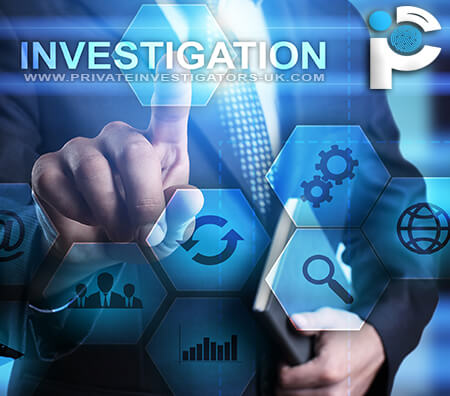The Critical Role of Asset Tracing During Divorce
March 15, 2024 - Reading time: 12 minutes
Updated on: September 3, 2025
Navigating divorce fairly depends on accurate identification and valuation of all marital property. Asset tracing helps uncover hidden wealth, reconstruct money trails, and support a just division of assets. Below is a practical guide to how it works, who is involved, and why it matters.

Quick Navigation
Deciding factors
- Successful asset division often hinges on meticulous asset tracing to locate, verify, and value concealed or disputed assets.
- Forensic accountants uncover discrepancies and reconstruct complex money flows across accounts, companies, and jurisdictions.
- Tracing supports recovery of misappropriated wealth through legal action or settlement.
- Methods used in divorce also apply to fraud and corporate disputes.
- Bringing in experienced specialists improves accuracy, speed, and evidential quality.
Forensic Accountants: the linchpins of asset tracing
Forensic accountants examine statements, ledgers, tax filings, and transaction logs to spot irregularities that suggest asset sheltering. They track transfers, inter-company loans, and movements through shell entities to build a clear picture of marital wealth.
They also provide independent valuations of property, investments, and business interests, and their findings are prepared for court. Many cases benefit from a combined team of forensic accountants, private investigators, solicitors, and valuation experts working in step.
Expert testimony can explain technical findings in plain English, helping the court or the other party understand what is missing and what a fair outcome looks like.
Asset tracing as a pillar of fair divorce settlements
Thorough tracing gives an accurate view of the marital estate so that division is based on facts, not estimates. Work typically starts with disclosure forms, then expands to bank records, tax returns, title deeds, trading accounts, and investment portfolios.
Where red flags appear, the team follows the money. That may involve company lookups, property registers, beneficial ownership checks, open-source research, witness enquiries, and targeted fieldwork by investigators to verify links and locate assets.
Once identified, assets are valued using suitable methods, such as market appraisals for property and EBITDA or DCF approaches for businesses. Correct valuation is essential to reach equitable terms.
Essential procedures in asset tracing
- Detailed review of disclosure and source documents
- Screening for undisclosed accounts, entities, and transactions
- Following money flows across banks, cards, and wallets
- Company, property, and registry checks in relevant jurisdictions
- Collaboration with investigators, solicitors, and valuers
- Independent valuation of assets for negotiating a fair split
Benefits of asset tracing for divorce settlements
Effective tracing can uncover undisclosed bank accounts, investments, real estate, vehicles, luxury items, and interests in private companies. By establishing the full picture, parties can negotiate on firm ground, reduce disputes, and avoid prolonged litigation. Transparency promotes faster settlement and lower legal costs.
- Discovery of hidden assets and income
- Fair allocation of marital property
- Better quality negotiations and outcomes
- Fewer disputes and lower legal spend
Beyond divorce: wider use cases
The same techniques apply to fraud investigations, shareholder disputes, partnership breakdowns, and judgement enforcement. Tracing supports recovery of misused funds, quantifies losses, and supplies evidence for civil or criminal action. It can also test whether a business valuation is understated by revealing off-balance-sheet interests or related-party flows.
Achieve equitable divorce agreements with professional help
Asset tracing is most effective when financial analysis is paired with field intelligence. Our investigators can verify holdings, identify undisclosed addresses and entities, and coordinate with your accountant and solicitor to secure evidence.
Speak with Private Investigators UK about a tailored plan. For a free, confidential quote, contact us and include key details such as locations, entities, and timeframes so we can advise the most efficient route.
Frequently Asked Questions
What counts as asset tracing in a divorce?
A structured process that identifies, verifies, and values marital assets. It combines forensic accounting, open-source research, registry checks, and targeted enquiries by investigators.
What are typical signs that assets are being hidden?
Sudden cash withdrawals, new company formations, loans to related parties, missing statements, or unexplained drops in income while lifestyle remains the same. Tracing tests these anomalies and evidences any concealment.
How long does asset tracing take?
It depends on scope and jurisdictions. A straightforward domestic review can be quick. Multi-jurisdictional cases with companies and trusts take longer and require coordinated professional input.
Can you look into my spouse’s bank accounts directly?
Access to private banking data requires lawful authority. Tracing uses disclosure, public records, lawful enquiries, and financial analysis to evidence assets without breaching privacy laws. Your solicitor may then seek orders for further disclosure where justified.
Do I need both a forensic accountant and a private investigator?
In many cases, yes. Accountants analyse numbers and documents. Investigators verify real-world links, locate assets and people, and capture supporting evidence. The combined approach delivers the strongest result.
Related articles
You are reading the PrivateInvestigators-UK blog — home to the UK's leading detective agency. Learn more about us by visiting our homepage PrivateInvestigators-UK.com.